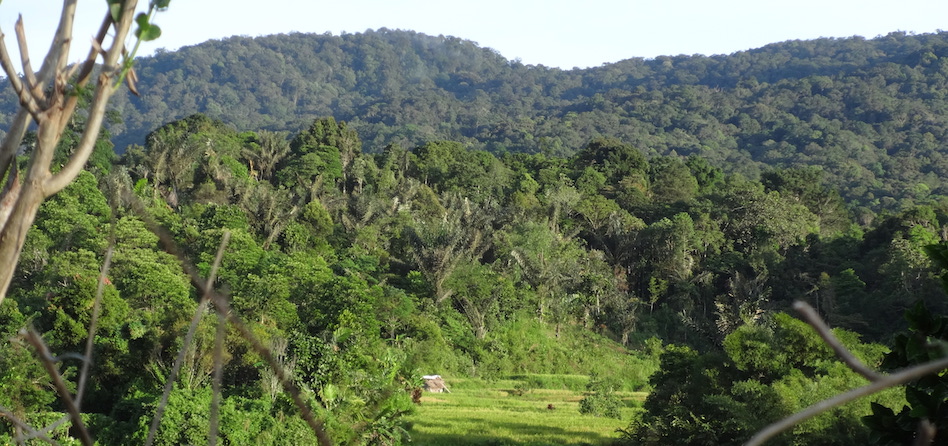
22 Oktober 2020

 In the old days, South Tapanuli area was famous by its Mandailing coffee, but it was just a history then. Nowadays, Sialaman village located in Sipirok sub-district of South Tapanuli District has emerged as one of the center of Arabica coffee producer in Tapanuli. The 200 ha village area also play as buffer zone that protect Dolok Sibual-Buali Nature Reserve.
In the old days, South Tapanuli area was famous by its Mandailing coffee, but it was just a history then. Nowadays, Sialaman village located in Sipirok sub-district of South Tapanuli District has emerged as one of the center of Arabica coffee producer in Tapanuli. The 200 ha village area also play as buffer zone that protect Dolok Sibual-Buali Nature Reserve.
The vast coffee plantation area is situated at an altitude of 1050-1250 meters above sea level. Temperatures in the area range between 18-240 C, which is ideal for growing Arabica coffee. Mist almost always fall every morning and afternoon. The Arabica coffee from Sialaman has particular and unique taste of Arabica coffee. Local farmers also grows other coffee varieties like Andung Sari, Sigararutang, and Ateng Super as well as robusta and liberica.
PETRA, an NGO working to assists community in income generating and forest conservation program, entered Sialaman village by purchasing wild civet (luwak) coffee as an entry point. When PETRA arrived five years ago, people hunt or entrap luwak, for allegedly damaging and drink palm sugar juice. They are even peddling the wild civet to market. Since then, its population decreases, and in return impacted to the decrease of coffee supply.
PETRA strategy to raise awareness to communities were made by held meetings with community while buying coffee beans. They tell people that coffee plants need cover crop, appropriate care and at the same time it needs Luwak role to spread beans . Luwak will survive if the coffee plants were planted along with cover crops.
In February 2016, PETRA introduce agroforestry program for coffee growers in Sialaman village. PETRA provide intensive assistance, establishing coffee farmers group, conduct trainings on agroforestry cultivation system, post-harvest and develop coffee marketing network through Marsada cooperative.
Currently there are 20 farmers has become member of Marsada cooperative. The average coffee produced are about 700 solup per month or 840 kg. While luwak beans collected were as much as 60-100 kg / month. Luwak are save now from hunting and trapping. The community has been aware that the presence of luwak in their garden is very profitable.
The mechanism to collect coffee were controlled by Marsada. A cooperative member was assigned to collect regular coffee beans and luwak coffee. Each group member is required to collect dirt left out by luwak in maximum 2 days. If longer than that, the Luwak remains will susceptible to other contaminants.
Currently, the coffee beans are marketed by Marsada cooperative to coffee exporters in Siborong-borong and Medan. Mahesya Kopi Luwak as a partner of Marsada Cooperative, helped to market the luwak coffee.
The added value of this coffee is, people get double benefit from letting Luwak living naturally in their plantations. With higher awareness on added value and forest conservation, the community enjoys direct benefit from the forest. People who used to practice shifting cultivation, logging, burning trees, now has changed their attitude into more environmental friendly toward forest, especially after they experiencing water crises and the air felt hotter. Now they realize that conserving nature is not only good for the balance of nature but it is also the best way to keep their livelihood alive. (as)
SHARE:
